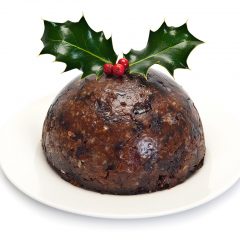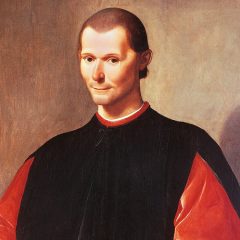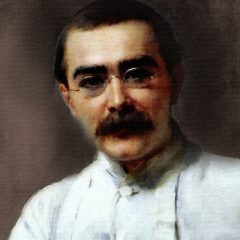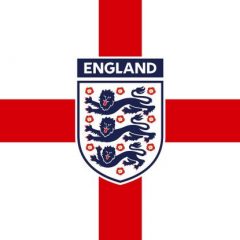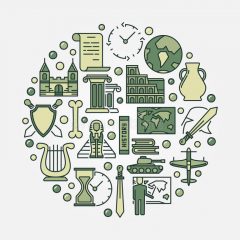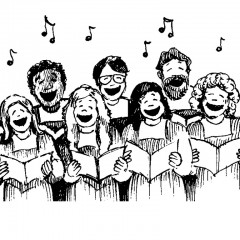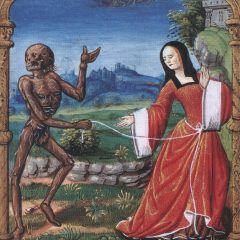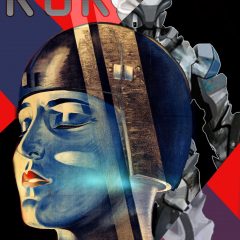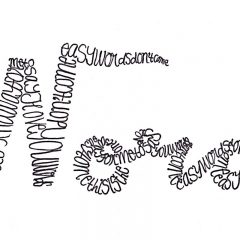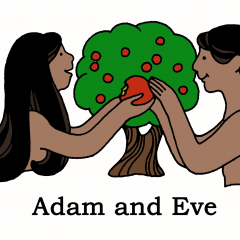The History of the Christmas Pud
The “Christmas Pud” – in our opinion the most delicious of all the scrumptious winter fayre that helps make up the traditional British Christmas. However what we think of as Christmas Pudding, is not what it was originally like! In this article we look at “The History of the Christmas Pud”
English Words that Used To Have Vastly Different Meanings To What We Understand Today
How would you rate your vocabulary ? Average; Better than Average ; Exceptional ?
It may not matter how good you think your command of English is because in this article we reveal some surprising revelations about some of the words, you may have thought you had a thorough understanding of, had, in point of fact, some VERY different meanings in the past.
Origins of Some English Eponyms : Titch, Platonic, Maudlin, Machiavellian
Eponyms are one of the most fascinating examples of how the English language gains new words. In this article we take a colourful look at the phenomenon that is the eponym gathering together the stories of the people behind the words that have passed into our everyday vocabulary : Titch; Platonic; Maudlin and Machiavellian.
5 Words Introduced to the English Language by Rudyard Kipling
Shakespeare is often credited as a the most prolific contributor of many of the words we use today in the English language. However he’s not the only venerable writer to do so. Rudyard Kipling, author of The Jungle Book, was also a highly prolific contributor, coining and popularising many words and phrases still in use in modern English.
The Origins of England’s Three Lions
“It’s coming home, it’s coming home, it’s coming, Football’s coming home ” – So goes the ever popular 1996 “Three Lions” song. So when did the three lions symbol come to be used as England’s royal arms and therefore on the England team shirts ? The answers is somewhat surprising and reveals why in the past we might’ve been singing “three leopards on a shirt”
English Words that Used To Have Vastly Different Meanings To What We Understand Today
How would you rate your vocabulary ? Average; Better than Average ; Exceptional ?
It may not matter how good you think your command of English is because in this article we reveal some surprising revelations about some of the words, you may have thought you had a thorough understanding of, had, in point of fact, some VERY different meanings in the past.
Some Guernsey Place Names & Their Meanings
Place-names are not just arbitrary sounds or quaint words. They had meaning to our remote ancestors who derived them for a reason. They give us insight into their world . In this article we look at just a few of some of Guernsey’s place names and their meanings.
English Words that Used To Have Vastly Different Meanings To What We Understand Today
How would you rate your vocabulary ? Average; Better than Average ; Exceptional ?
It may not matter how good you think your command of English is because in this article we reveal some surprising revelations about some of the words, you may have thought you had a thorough understanding of, had, in point of fact, some VERY different meanings in the past.
Christmas Carols – The Oldest ones are the best – Some Origins
Christmas carols are mostly a Victorian tradition along with trees, crackers and cards. In this article we look at why the popularity of Silent Night has never faded, why there’s always a place for Hark! The Herald Angels Sing, and why the British fondness of Good King Wenceslas has yet to subside.
Origins of Some English Eponyms : Farenheit, Colossal, Macabre, Dolby
Eponyms are one of the most fascinating examples of how the English language gains new words. In this article we take a colourful look at the phenomenon that is the eponym gathering together the stories of the people behind the words that have passed into our everyday vocabulary : Farenheit, Colossal, Macabre, Dolby
From Robot to Airy-Fairy to Cyberspace – 10 Beautiful Words Coined by Famous Writers
If you look at the number of words in the English language you’ll find that estimates vary between 500,000 and just over 2 million, depending on how you count them. You will find that some of these words were simply “made up” by various authors at one time or another but they’ve proved so popular that they’ve entered our everyday lexicon like Robot, Airy-Fairy, Banana Republic, Cyberspace, Co-ed and many more.
What Are the Oldest Words in the English Language Still in Use Today ?
The oldest (known) words in the English language are, as you might expect, “building block words” – words that reflecting key elements in any developing human society. All of the ones we’ve listed in this article originate on or before 1000AD and 900AD.
Surprising Science : Would You Adam & Eve it … They DID exist!
Reality is sometimes stranger than we’d ever credit. Believe it or not but Scientists are actually saying that they can prove that Adam & Eve, that is a single set of ancestors, are parents to us all!
Origins of Some English Eponyms : Caesarian Section, Bikini, Bayonet, Armageddon
Eponyms are one of the most fascinating examples of how the English language gains new words. In this article we take a colourful look at the phenomenon that is the eponym gathering together the stories of the people behind the words that have passed into our everyday vocabulary : Caesarian Section, Bikini, Bayonet, Armageddon
Origins of Everyday Inventions we use in the Office : Selloptape; Photo-copier Post-It Notes
We can take a lot things for granted in our day to day lives. Take your office for example : Who came up with the idea of those little yellow rectangles that are indispensable for leaving a note stuck to your colleagues screen or the photo-copier that will faithfully churn out copies of a document your boss forgot he absolutely positively needs 5 minutes before a crucial meeting.

